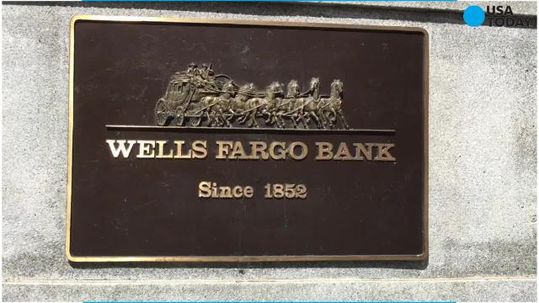Wells Fargo Fined $185M for Fake Accounts – 5,300 Were Fired
CAPITALISM, 12 Sep 2016
9 Sep 2016 – Wells Fargo Bank, one of the nation’s largest banks, has been hit with $185 million in civil penalties for secretly opening millions of unauthorized deposit and credit card accounts that harmed customers, federal and state officials said Thursday [8 Sep].
Employees of Wells Fargo (WFC) boosted sales figures by covertly opening the accounts and funding them by transferring money from customers’ authorized accounts without permission, the Consumer Financial Protection Bureau, Office of the Comptroller of the Currency and Los Angeles city officials said.
An analysis by the San Francisco-headquartered bank found that its employees opened more than two million deposit and credit card accounts that may not have been authorized by consumers, the officials said. Many of the transfers ran up fees or other charges for the customers, even as they helped employees make incentive goals.
The findings stem in part from a Los Angeles County Superior Court lawsuit filed last year in which Los Angeles City Attorney Mike Feuer accused the bank of violating California unfair competition laws.
The civil action charged that Wells Fargo Bank and its parent, Wells Fargo & Co., “victimized their customers by using pernicious and often illegal sales tactics to maintain high levels of sales of their banking and financial products.”
“Wells Fargo built an incentive-compensation program that made it possible for its employees to pursue underhanded sales practices, and it appears that the bank did not monitor the program carefully,” said CFPB Director Richard Cordray. He added that thousands of bank employees “misused consumer names and personal information to create new checking and credit card accounts to inflate their sales figures to meet their sales targets and claim higher bonuses.”
The bank agreed to pay full restitution to all victims and a $100 million fine to the Consumer Financial Protection Bureau’s civil penalty fund — the largest in the regulator’s five-year operating history. Wells Fargo will pay a separate $35 million penalty to the Office of the Comptroller of the Currency, and an additional $50 million to the city and county of Los Angeles.
The settlements, which the bank said it had made provisions for as of June 30, include an additional $5 million in customer remediation.
Additionally, Wells Fargo said it terminated approximately 5,300 employees and managers over a five-year period for their involvement with the unauthorized accounts. The firings, representing roughly 1% of the total workforce during that time, “reflect our commitment to monitoring and addressing any inappropriate sales conduct,” the bank said.
Wells Fargo fined $3.6M over student loan practices
The bank agreed to the filing of a CFPB consent order without admitting or denying legal conclusions reached by federal investigators.
“Wells Fargo reached these agreements consistent with our commitment to customers and in the interest of putting this matter behind us,” the bank said in a statement. “Wells Fargo is committed to putting our customers’ interests first 100% of the time, and we regret and take responsibility for any instances where customers may have received a product that they did not request.”
The bank said a review by a third-party consultant resulted in $2.6 million in refunds to customers for any fees associated with products the account holders “may not have requested.” Accounts refunded represented a fraction of one percent of the accounts reviewed, and refunds averaged $25, Wells Fargo said.
Wells Fargo Q2 income dips 2.8% as community banking earnings fall
Wells Fargo shares closed fractionally higher at $49.90 Thursday.
__________________________________
Kevin McCoy has covered everything from the 1993 World Trade Center bombing to the 9/11 attacks and Hurricane Katrina, plus investigations of prosecutorial misconduct and prescription drug safety
DISCLAIMER: The statements, views and opinions expressed in pieces republished here are solely those of the authors and do not necessarily represent those of TMS. In accordance with title 17 U.S.C. section 107, this material is distributed without profit to those who have expressed a prior interest in receiving the included information for research and educational purposes. TMS has no affiliation whatsoever with the originator of this article nor is TMS endorsed or sponsored by the originator. “GO TO ORIGINAL” links are provided as a convenience to our readers and allow for verification of authenticity. However, as originating pages are often updated by their originating host sites, the versions posted may not match the versions our readers view when clicking the “GO TO ORIGINAL” links. This site contains copyrighted material the use of which has not always been specifically authorized by the copyright owner. We are making such material available in our efforts to advance understanding of environmental, political, human rights, economic, democracy, scientific, and social justice issues, etc. We believe this constitutes a ‘fair use’ of any such copyrighted material as provided for in section 107 of the US Copyright Law. In accordance with Title 17 U.S.C. Section 107, the material on this site is distributed without profit to those who have expressed a prior interest in receiving the included information for research and educational purposes. For more information go to: http://www.law.cornell.edu/uscode/17/107.shtml. If you wish to use copyrighted material from this site for purposes of your own that go beyond ‘fair use’, you must obtain permission from the copyright owner.

